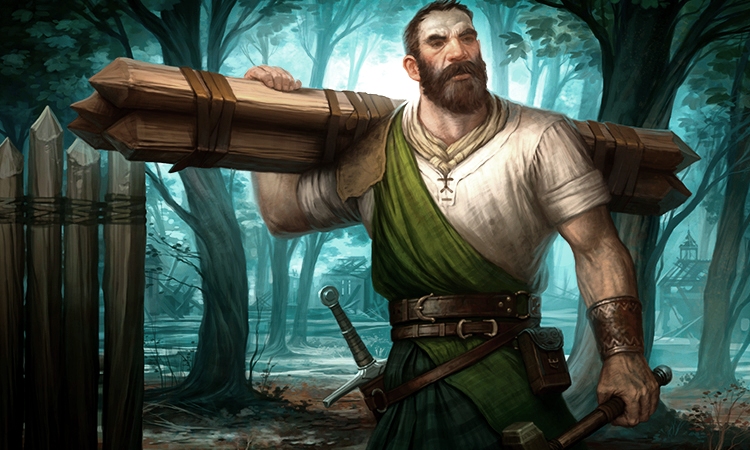Difference between revisions of "Barter Economy"
Tao alexis (talk | contribs) |
Tao alexis (talk | contribs) |
||
| Line 1: | Line 1: | ||
[[File:Barter Economy.jpg|right|560px|thumb]] | [[File:Barter Economy.jpg|right|560px|thumb]] | ||
| − | + | '''Bartering''' makes an agreement to swap goods without the requirement of using [[Coin (monetary unit)|coins]] as an intermediary medium. This practice is most prevalent in remote, rural communities where the accessibility of [[Vendor|shops]], stores, or [[Market|markets]] within a reasonable travel distance makes the use of currency impractical. While currency does exist within these cultures and may occasionally find its way into rural communities, the value of coins is comprehended and employed to a minimal extent. | |
| − | A barter economy evaporates | + | The primary trade done through barter revolves around essential items, those that a neighbor could feasibly provide, established through individual arrangements between persons who know one another. These are often treated like exchanged favors, with give and take an important consideration. A barter economy evaporates when making a trade within a hamlet, as the distance between residents increases and coin has a greater presence. |
== Vouchers == | == Vouchers == | ||
| − | + | '''Vouchers''' serve as a means of compensating for surplus goods produced by individuals such as [[Farmland|farmers]] or [[Pasture|herders]]. This system is facilitated through a trusted intermediary, typically a [[Garner|garner]] or the overseer of a [[Carter Post|carter post]]. | |
| + | These intermediaries "pay" for the delivered goods by issuing signed "vouchers." When a teamster or carter collects these goods for transportation to a [[Village|village]] or [[Town|town]], a similar voucher is provided to the garner. | ||
| − | + | Note that these vouchers hold no inherent exchange value, and cannot be transferred to other individuals. They are essentially personal [[Note Payable|promissory notes]], exchanged directly from one person to another. The method is a practical response to the absence of available coins or the need for coin-based transactions. All parties involved in this process are personally acquainted with the individuals responsible for converting the voucher into coin, ensuring a level of trust and familiarity within the community. Consequently, newcomers or strangers must establish themselves as part of the community and gain acceptance before participating in this form of bartering. | |
== Outlawry == | == Outlawry == | ||
| − | The | + | The absence of currency in remote regions acts as a safeguard for these communities against the threat of [[Bandits|bandits]] and pillagers. Because there's no readily available wealth to be stolen, honest transactions can occur between rural residents and outlaws. In this arrangement, the outlaws offer information and occasional goods in exchange for necessities like food, basic supplies, and temporary shelter provided by the rural folk. Consequently, independent and isolated farmers willingly support the actions of these outlaws, as both parties benefit from this relationship. |
| + | This mutual understanding is well-known and disapproved of in more civilized circles. However, due to the general neglect of destitute farmers by the authorities, little is done to address the issue. | ||
Revision as of 20:11, 7 October 2023
Bartering makes an agreement to swap goods without the requirement of using coins as an intermediary medium. This practice is most prevalent in remote, rural communities where the accessibility of shops, stores, or markets within a reasonable travel distance makes the use of currency impractical. While currency does exist within these cultures and may occasionally find its way into rural communities, the value of coins is comprehended and employed to a minimal extent.
The primary trade done through barter revolves around essential items, those that a neighbor could feasibly provide, established through individual arrangements between persons who know one another. These are often treated like exchanged favors, with give and take an important consideration. A barter economy evaporates when making a trade within a hamlet, as the distance between residents increases and coin has a greater presence.
Vouchers
Vouchers serve as a means of compensating for surplus goods produced by individuals such as farmers or herders. This system is facilitated through a trusted intermediary, typically a garner or the overseer of a carter post.
These intermediaries "pay" for the delivered goods by issuing signed "vouchers." When a teamster or carter collects these goods for transportation to a village or town, a similar voucher is provided to the garner.
Note that these vouchers hold no inherent exchange value, and cannot be transferred to other individuals. They are essentially personal promissory notes, exchanged directly from one person to another. The method is a practical response to the absence of available coins or the need for coin-based transactions. All parties involved in this process are personally acquainted with the individuals responsible for converting the voucher into coin, ensuring a level of trust and familiarity within the community. Consequently, newcomers or strangers must establish themselves as part of the community and gain acceptance before participating in this form of bartering.
Outlawry
The absence of currency in remote regions acts as a safeguard for these communities against the threat of bandits and pillagers. Because there's no readily available wealth to be stolen, honest transactions can occur between rural residents and outlaws. In this arrangement, the outlaws offer information and occasional goods in exchange for necessities like food, basic supplies, and temporary shelter provided by the rural folk. Consequently, independent and isolated farmers willingly support the actions of these outlaws, as both parties benefit from this relationship.
This mutual understanding is well-known and disapproved of in more civilized circles. However, due to the general neglect of destitute farmers by the authorities, little is done to address the issue.
See also,
Bartering (sage ability)
Coin (symbol)
The Adventure
Type-7 Hex
